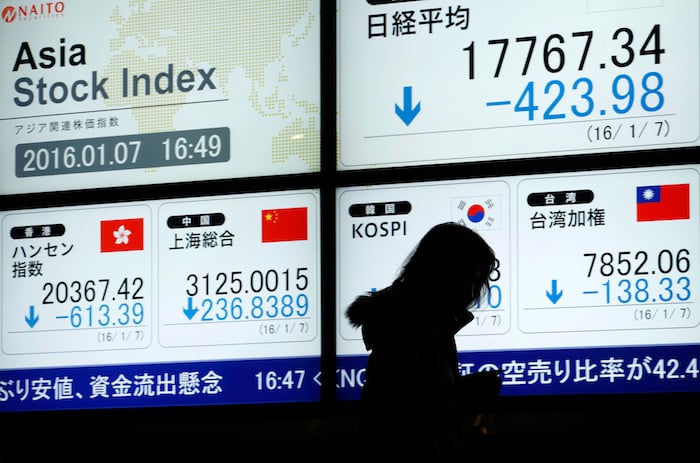You know that international diversification is a wise move. After this week, your clients may need more convincing.
Turmoil in China's stock markets has spread across the globe, but foreign markets are taking the biggest hits. China's CSI 300 Index plunged 7.2% on Thursday before circuit breakers shut down trading for the day.
China's woes have spread across the globe, meaning international diversification has given little comfort this year. The average large-company blend fund has fallen 2.64% this year, according to Morningstar, while the average foreign large-company blend fund has tumbled 3.44%.
Those who added a dollop of emerging markets to their clients' mix are probably getting hate mail as well: Those are down 3.55%.
And China funds have fallen 4.39%, a figure that's only going to get worse by the end of trading Thursday. The SPDR MSCI China A Shares (XINA) are down 11% for the year.
The market turmoil highlights one problem with international investing: Foreign markets have low correlations with the U.S. market in good times, but they tend to run in lockstep during the bad times.
RISING VOLATILITY
“In the short term, when volatility is rising, the benefits of international diversification tend to diminish,” says Michael Arone, chief investment strategist for State Street Global Advisers. “At that point, you should be taking a step back and taking a deep breath. Diversifying among global stocks should benefit investors in the long run.”
Mr. Arone points out that in international diversified markets, particularly in Europe, profits are rising more quickly than they are in the U.S., and that monetary policy is more aggressive there than here. And a lower euro should benefit European exporters.
Emerging markets, however,
are a different story. “They are very compelling from a valuation standpoint, but return on equity has been at its lowest level than it's been in a number of years,” Mr. Arone says. “On a relative basis, they're not as attractive as developed markets.”
STRONG DOLLAR
He's not saying you should scratch emerging markets from the lineup. Emerging markets stocks are about 11% of the world's stocks, he says. And emerging markets account for about 50% of world gross domestic product growth. But don't rush to jump in. “We think there could be a more attractive entry point,” he says.
And, Mr. Arone warns, strength in the dollar will also be a headwind — not just for emerging markets, but for developed ones as well. When the dollar rises in value, it reduces gains for U.S. investors in international stocks and bonds. For example, Belgium's stock market has gained 24.01% the past 12 months in euro terms, according to MSCI. Translated back to dollars, the Belgian bourse has gained 11.85%.
Malcolm Makin, financial planner in Westerly, R.I., says that
education is the key to keeping clients calm. “The calls and e-mails we're getting are basically, 'Are we still OK? Is my plan still in place?'” Mr. Makin says. Ten, 15 years ago, they would have been, 'Are we on the brink of disaster?' The truth is, the U.S. economy is OK. There's no reason to sell the house in Florida and buy a bunker.”







